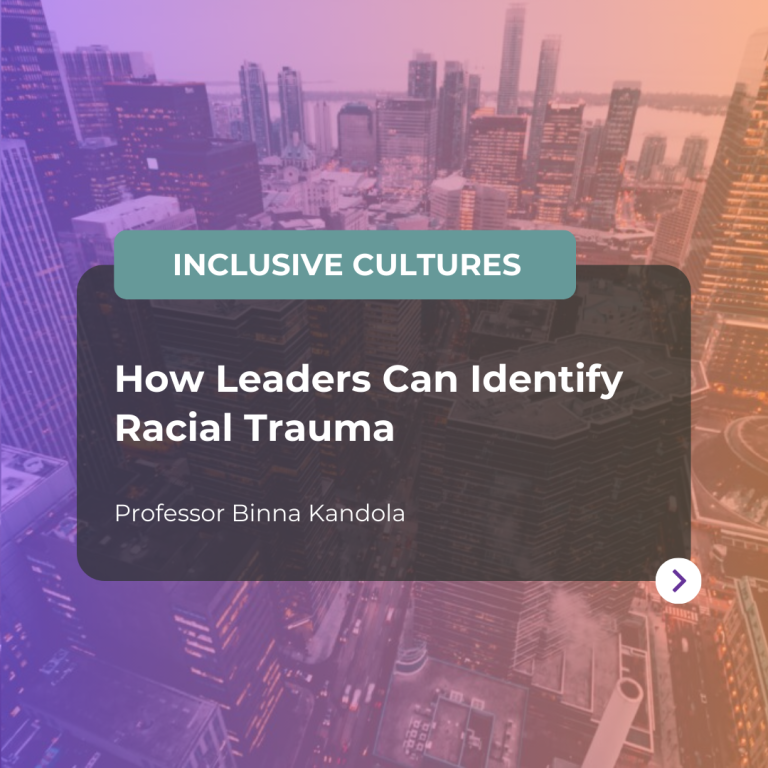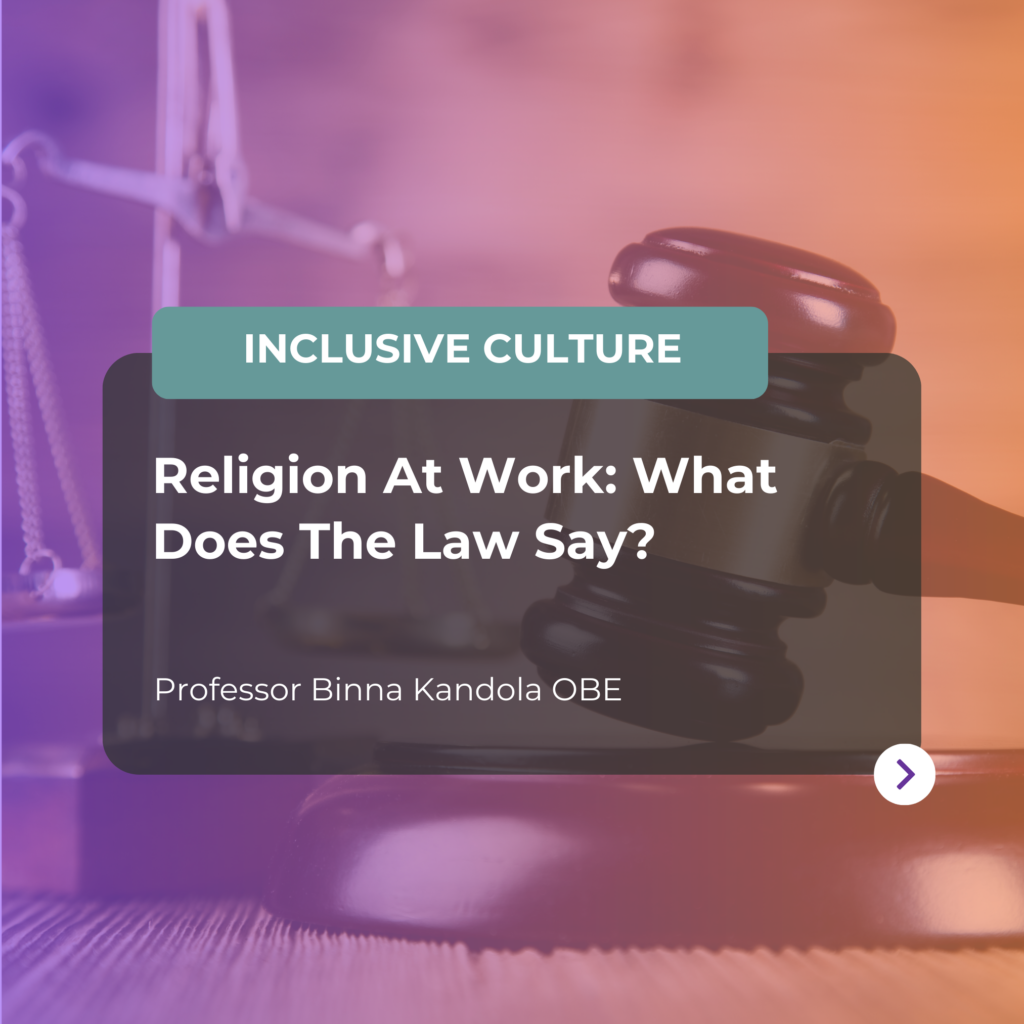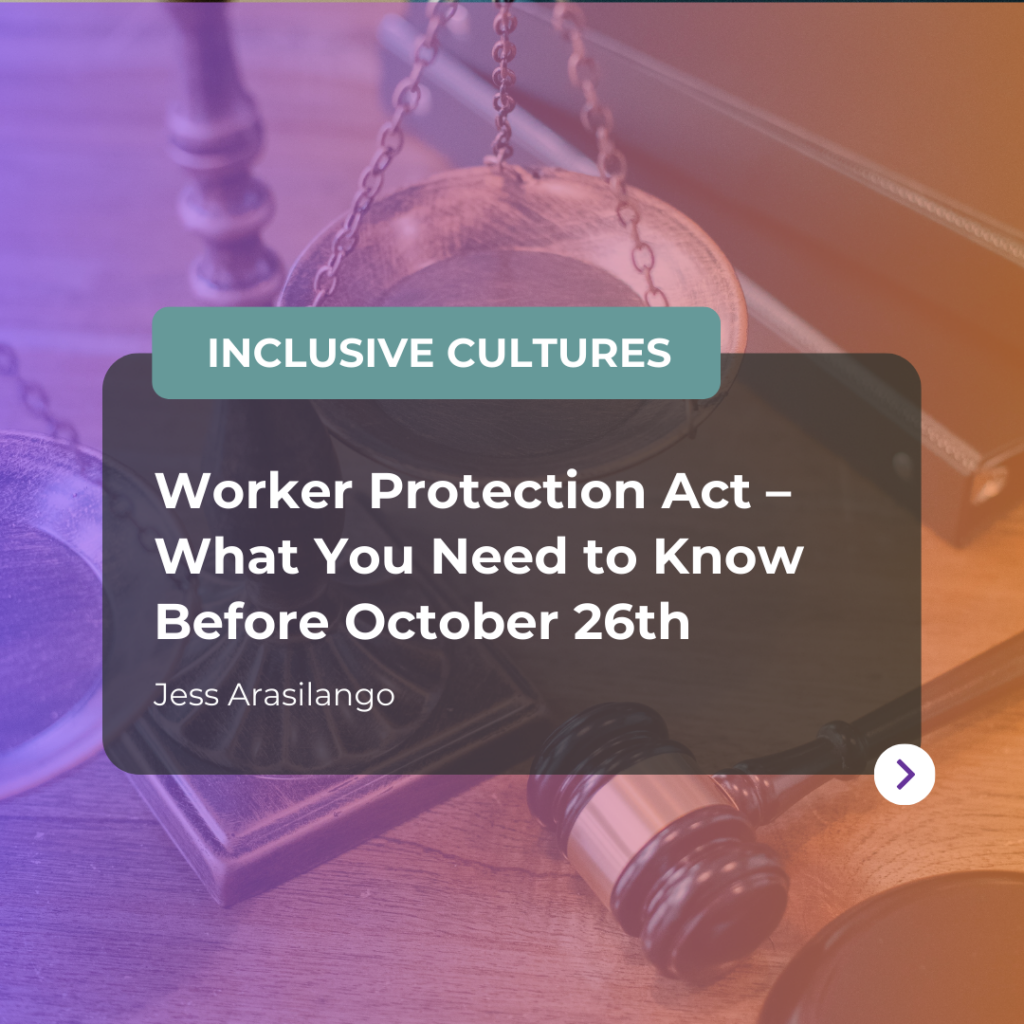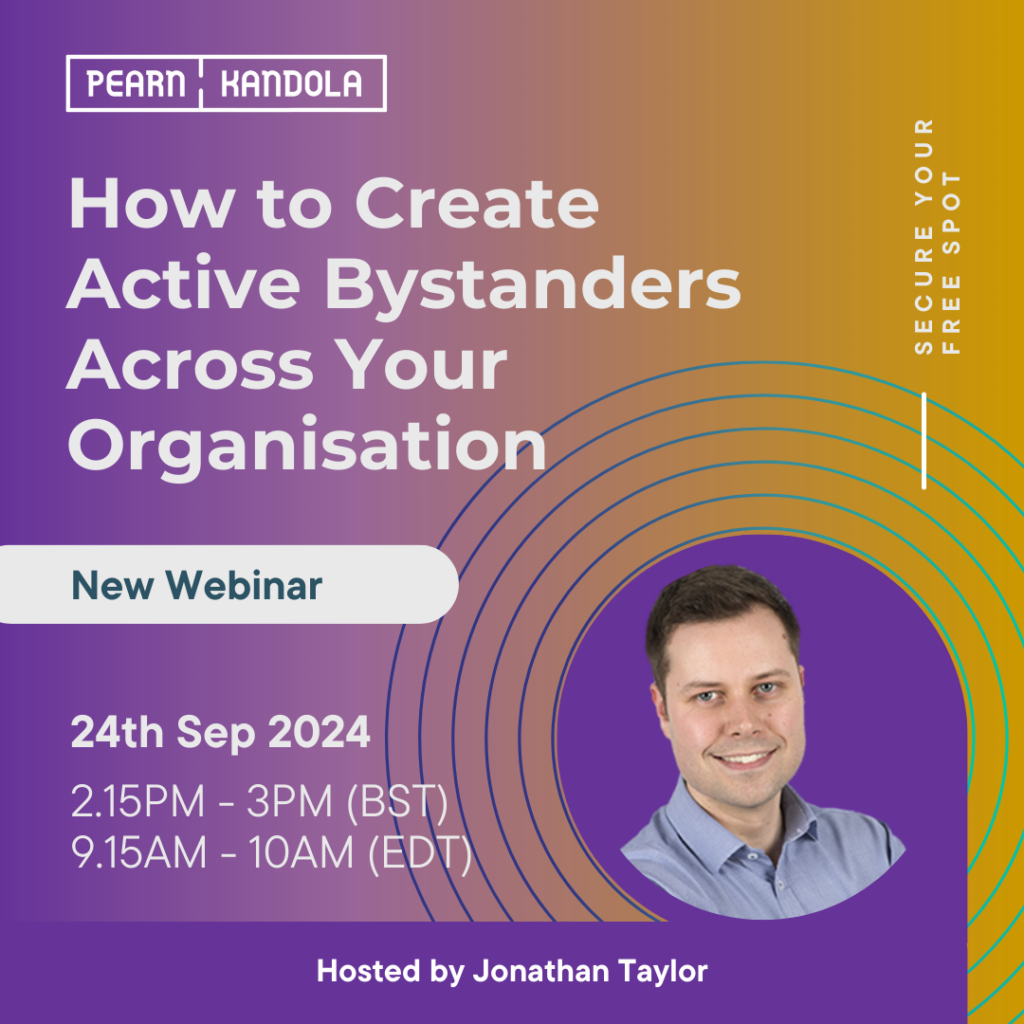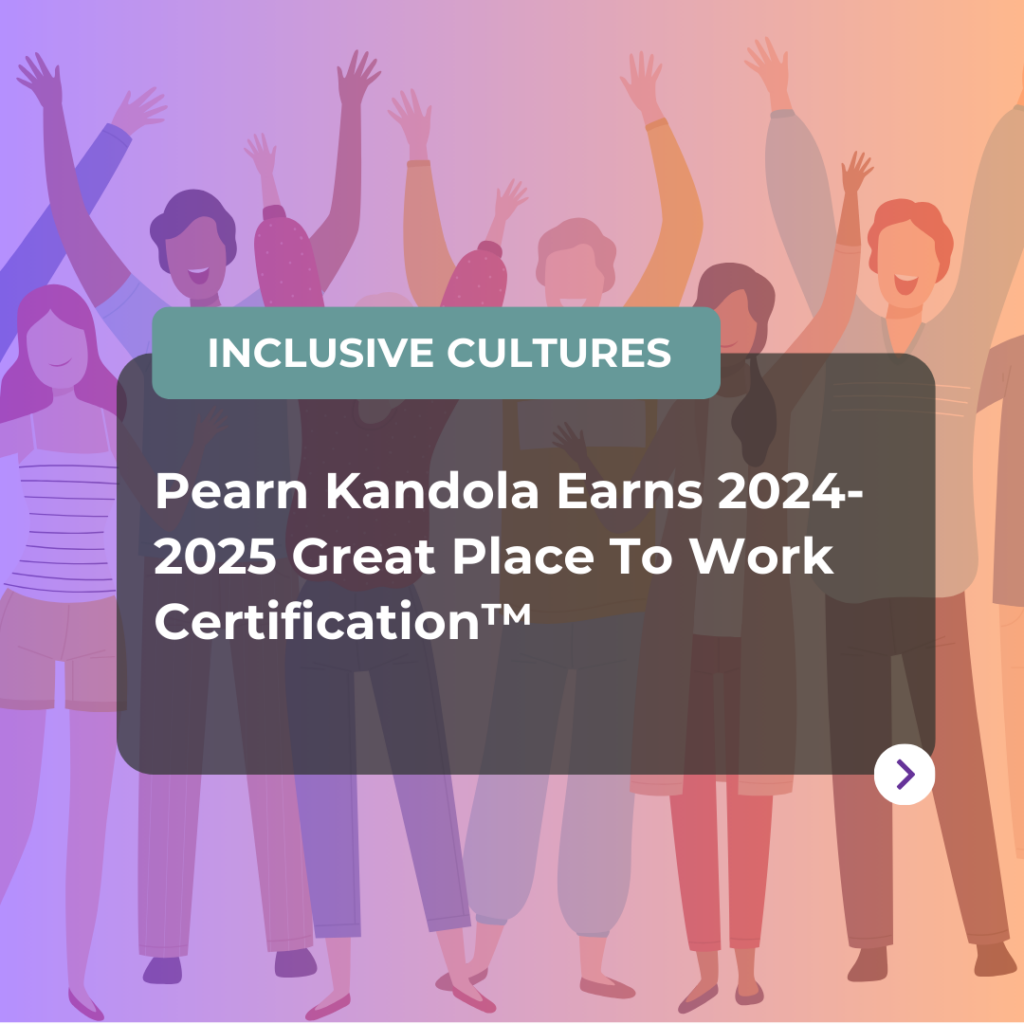The evidence that racism exists in workplaces is incontestable. Discussion of issues such as the race pay gap and the lack of BAME (Black, Asian & Minority Ethnic) representation at senior levels are gathering momentum – both in the media and in corporate culture itself – and some organisations are beginning to put measures in place to ensure greater fairness and transparency in their processes.
However, while it’s right to act on these problems, we are missing a key component in truly overcoming them. Namely, the psychological element. Tackling the issues at their root is important, and strong and decisive leadership is required in order to do so. But we also need to address the impact that they may already have had.
Specifically, we need leaders to develop their understanding of racial trauma.
What is racial trauma?
Just as we are becoming more aware of the presence of modern racism in the workplace, so too are we developing our understanding of the importance of taking care of our mental health. A large part of this discussion is the impact that work can have. After all, many of us spend a large chunk of our waking day at work. It should come as no surprise that it can have a significant impact on our wellbeing.
It is encouraging to see so many leaders developing their understanding of modern racism and of mental health, however they are failing to recognise how these two issues intersect.
This is where the discussion of racial trauma comes into play. It is a term used to describe the very specific ways in which racism impacts the psychological health of people of colour. Racial trauma describes the emotional impact that racism has on individuals and in turn how this affects the person’s physical and psychological wellbeing.
Racial trauma is a vital concept for leaders to be aware of, as it can help them better understand BAME employees’ vulnerability to psychological injury in the workplace.
Whilst there is an understandable focus on direct, obvious and blatant acts, this does not describe the whole picture at all. The majority of racist events are subtle in nature, with examples including not being greeted, being excluded from social events, being assumed to work in a lower role or being spoken to in a hostile manner. To someone who may be present when these acts occur, they may not seem like much. However, for those on the receiving end of such behaviour, they cause significant distress. They also can lead to issues such as low self-esteem, self-doubt and loss of self-confidence.
And yet, there is little discussion of racial trauma in a workplace setting.
What impact does racial trauma have?
Both overt and covert forms of racism have been linked to various manifestations of psychological distress, including depression and low mood, anxiety and post-traumatic stress disorder. This distress can manifest in a multitude of ways though; emotionally, cognitively, behaviourally or even physiologically.
- Cognitive responses often include flashbacks, negatively appraising neutral events or developing low self-esteem.
- Behavioural responses include avoiding situations that remind the person of a racist experience.
- Emotional response, or race-based stress, may manifest itself through anger, anxiety, low mood, shame and guilt.
- Finally, many targets of racism report physical effects, such as gastrological complaints, high blood pressure, headaches or migraines.
It is important that leaders are able to recognise all of these manifestations, as part of their education on racial trauma. They must also recognise the need for proper support to overcome these issues.
What can leaders do?
The fear of retaliation, exclusion or ‘being seen as a troublemaker’ means that BAME employees are often reluctant to discuss their experience, seek support internally or report racist incidents. Indeed, our own previous research at Pearn Kandola found that a third of black (34%) and Asian (36%) employees would take no action after witnessing an act of racism in the workplace. Of all respondents who said that they would take no action, two-fifths (39%) said it was due to fear of the consequences of doing so.
Therefore, we need leaders who are not only aware of these issues, but are also genuinely open to hearing about them.
This will require a significant change from the current mentality. Organisations tend to respond defensively when confronted with allegations of racism, partly because key individuals in HR and leadership positions are intimidated by the legal ramifications of racist abuse within their organisations. However, they also respond defensively because these allegations clash with the dominant, liberal view of the world. Many will even claim to be ‘colour-blind’, a mindset which will only make them more unhappy when faced with the prospect of racism within their ranks.
This kind of response is extremely unhelpful, and in reality, will only serve to exacerbate the problem of modern racism – and by extension, racial trauma. What we need is to develop cultures of psychological safety, in which BAME team members feel they can come forward and speak openly about their experiences. Only then will we be in a position to truly address the risk that racial trauma poses.
In the new book, Free to Soar: Race and Wellbeing in Organisations, racial trauma is one of a range of issues relating to the relationship between race and wellbeing in the workplace, explored in depth by a team of business psychologists and edited by Professor Binna Kandola. Please see here for more information.
